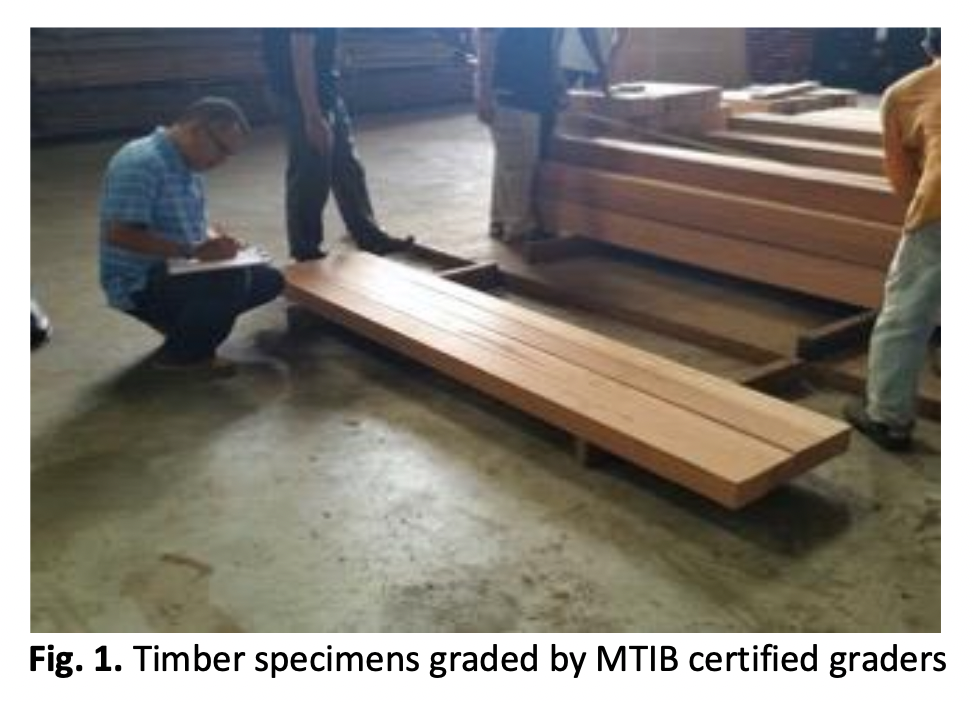Application of Weibull's Theory to Assess the Depth Effect of Malaysian Tropical Hardwoods According to Eurocode 5
DOI:
https://doi.org/10.37934/araset.34.1.361371Keywords:
Limit state design, tropical hardwood, Weibull’s theory, depth modification, size effectAbstract
The adoption of limit state design according to Eurocode 5 (EC5) has brought about design strength optimisation in design practices worldwide. However, the implementation of EC5 may not be suitable for Malaysian tropical timber species as the design strength data in European Standard (EN) 338:2016 is based on softwood and temperate hardwood species. EC5 has a well-established 1/k value of 0.2 for softwood and temperate hardwood with characteristic densities below 700 kg/m3. The value of 0.2 is still uncertain for tropical hardwood timber and it is predicted that the 1⁄k value for characteristic density above 700kg/m3 will be different. Therefore, in this study, the application of Weibull's theory is being used to determine the 1/k value for selected species namely, Balau (Shorea spp.), Kempas (Koompassia malaccensis), Kapur (Dryobalanops spp.), Keruing (Dipterocarpus spp.), Geronggang (Cratoxylon arborescens), and Light Red Meranti (Shorea spp.) with density ranges from 300 kg/m3 to 1000 kg/m3. Experimental bending data from previous researchers were analysed and verified using this theory. From the theoretical prediction, the calculated 1/k value for the selected species ranges from 0.158 to 0.204 which is close to the established value of 0.2. This study provides the actual k value as well as the true depth modification factors for tropical hardwood which important for safe and economical structural timber design.
Downloads




























